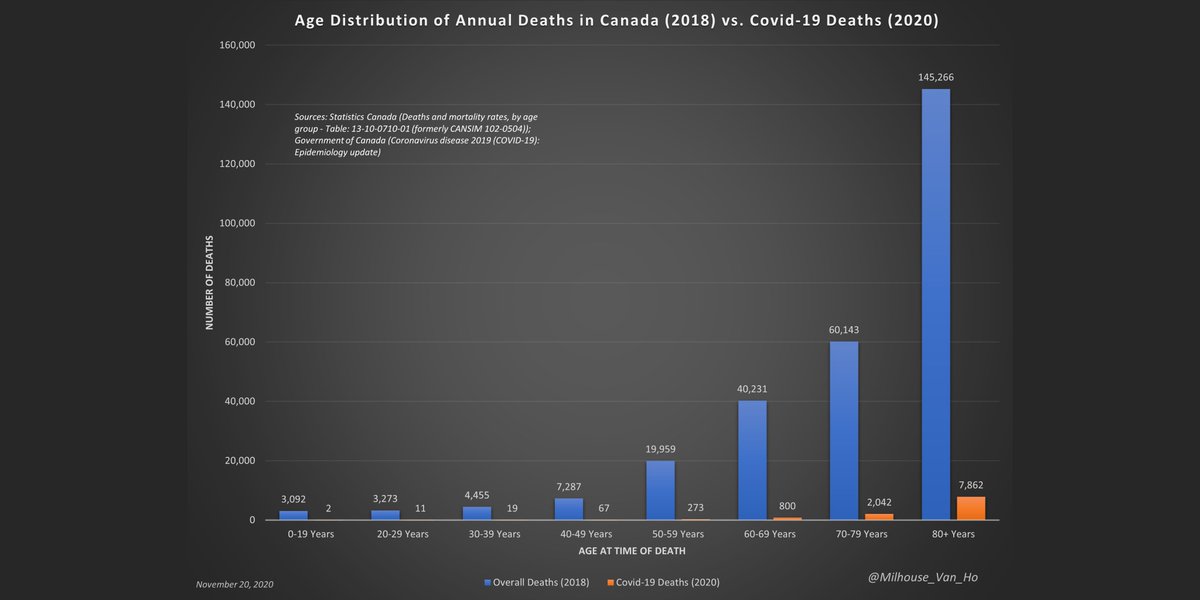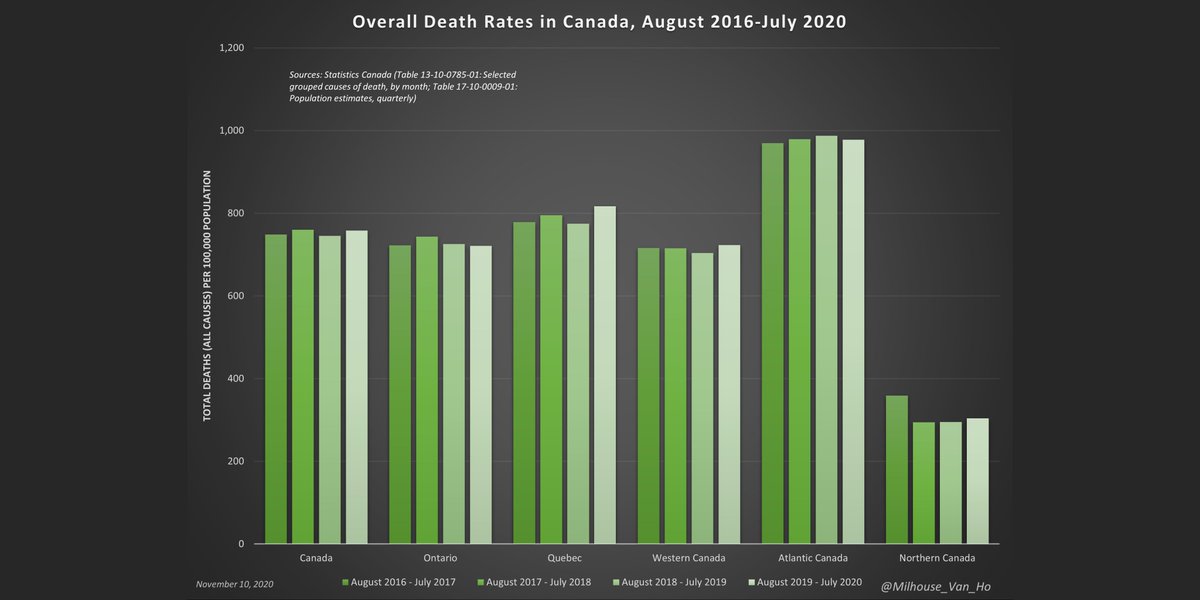
November 20 novembre
Weekly update for / Mise à jour hebdomadaire du Ontario/Quebec/Canada
Data is 100% public and official, and fully cited. / Les données sont 100% publiques et officielles.
#COVID19Canada #COVID19Ontario #COVID19Canada #covid19qc #covid19toronto



Weekly update for / Mise à jour hebdomadaire du Ontario/Quebec/Canada
Data is 100% public and official, and fully cited. / Les données sont 100% publiques et officielles.
#COVID19Canada #COVID19Ontario #COVID19Canada #covid19qc #covid19toronto




Canada - Covid-19 still presents a risk primarily to the elderly, not to children and hardly to working-age adults.
(n.b. Based on 2020 YTD data for Covid-19 - figures to be revised.)
(n.b. Based on 2020 YTD data for Covid-19 - figures to be revised.)

However, Covid-19 is often not a wholly distinct and separate cause of death as there are other medical conditions involved in many cases.
There are also cases in which it is not even a cause of death, but the individual had tested positive sometime prior to their death.
There are also cases in which it is not even a cause of death, but the individual had tested positive sometime prior to their death.

Canada - The average age of a death by or with covid-19 is higher than life expectancy.
Deaths among those over 80 account for 71.0% of deaths by/with covid-19, but only 51.2% of all deaths (all causes) in 2018.
Deaths among those over 80 account for 71.0% of deaths by/with covid-19, but only 51.2% of all deaths (all causes) in 2018.

Canada - Bear in mind that the risk of death will sadly always rise in line with one's advancing age.
In 2018, 9.2% of those in the over-80 age cohort passed away.
(n.b. Based on 2020 YTD data for Covid-19 - figures to be revised.)
In 2018, 9.2% of those in the over-80 age cohort passed away.
(n.b. Based on 2020 YTD data for Covid-19 - figures to be revised.)

If you are under 70, your risk of dying after being infected with SARS-CoV-2 is lower than your annual risk of death.
If you are over 70, your risk of dying after being infected is only slightly higher than your annual risk of death.
If you are over 70, your risk of dying after being infected is only slightly higher than your annual risk of death.

All-cause death rates in Canada, 2016 to 2020:
- Death rates in Aug 2019-July 2020 generally comparable to earlier periods
- Significantly more variation between regions than year-to-year within same region
- Death rates in Aug 2019-July 2020 generally comparable to earlier periods
- Significantly more variation between regions than year-to-year within same region

Overall deaths in Canada, 2016 to 2020:
- Ageing and growth of population may be biggest factors in modest year-over-year growth
- Ageing and growth of population may be biggest factors in modest year-over-year growth

November 20 – Ontario weekly update available here:
https://twitter.com/Milhouse_Van_Ho/status/1329760308496371712?s=20
Mise à jour hebdomadaire du Québec disponible ici:
https://twitter.com/Milhouse_Van_Ho/status/1329761520142741504?s=20
• • •
Missing some Tweet in this thread? You can try to
force a refresh



























